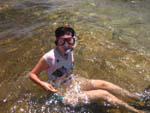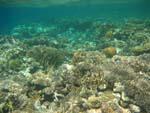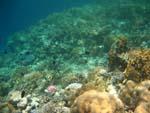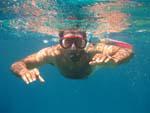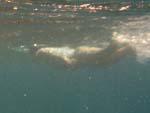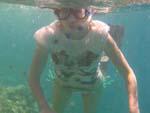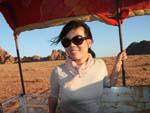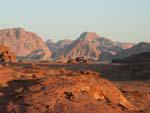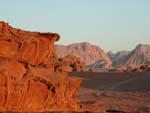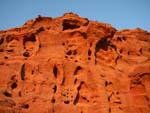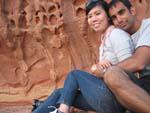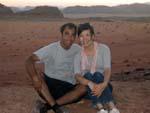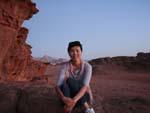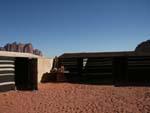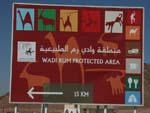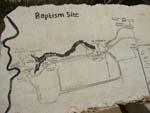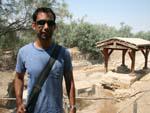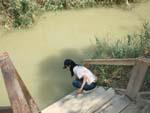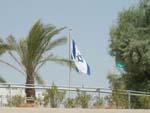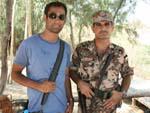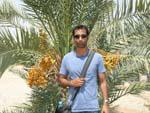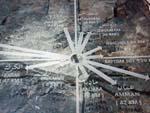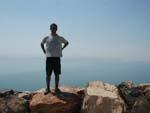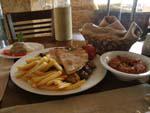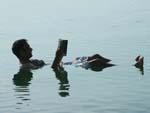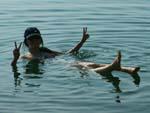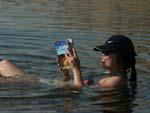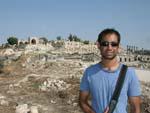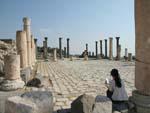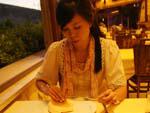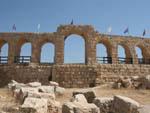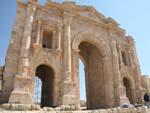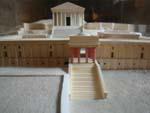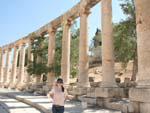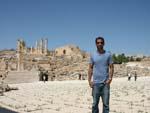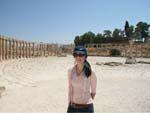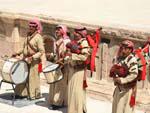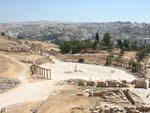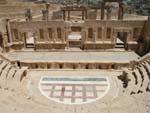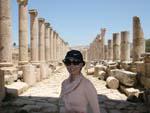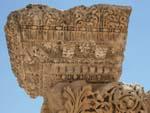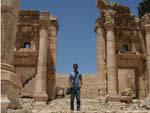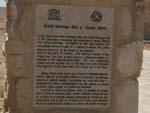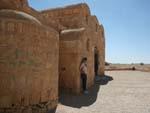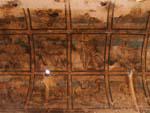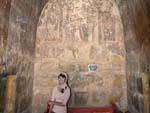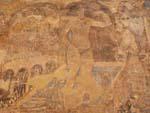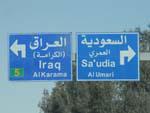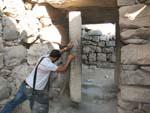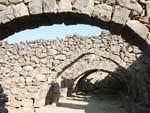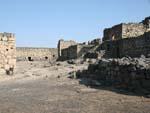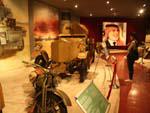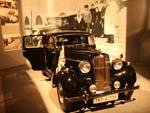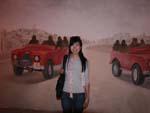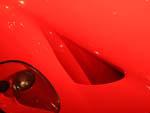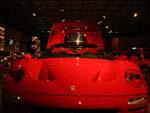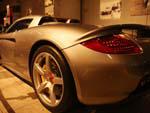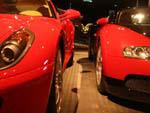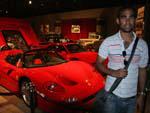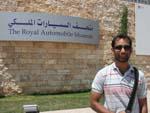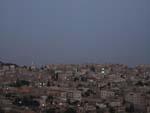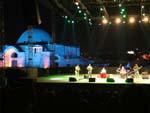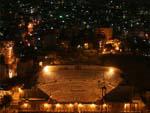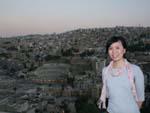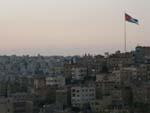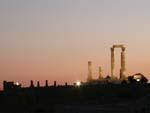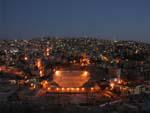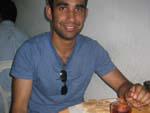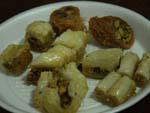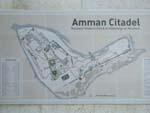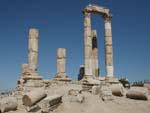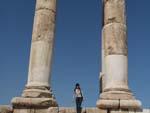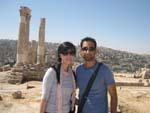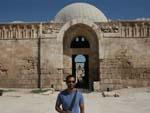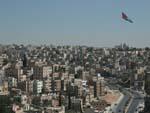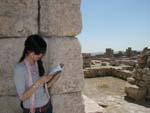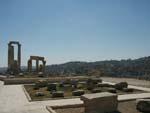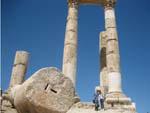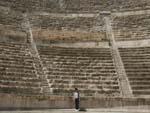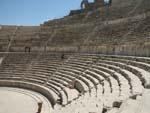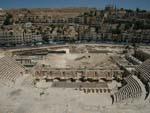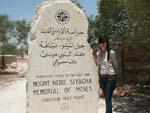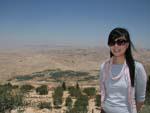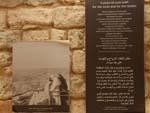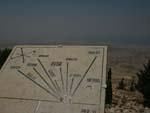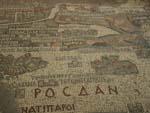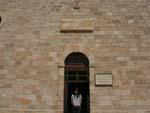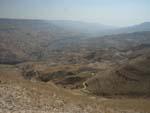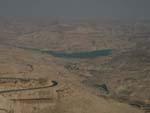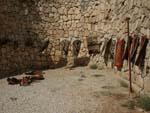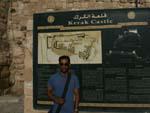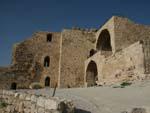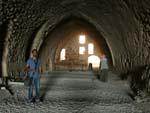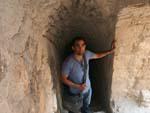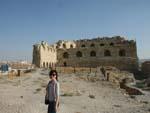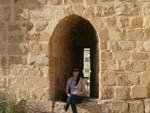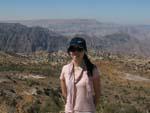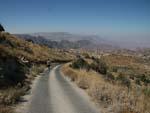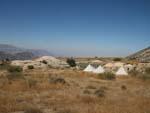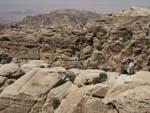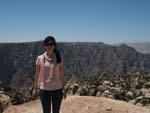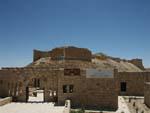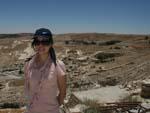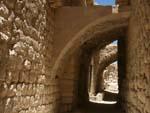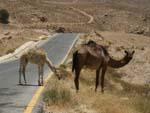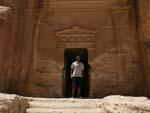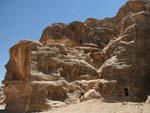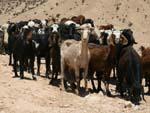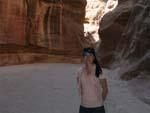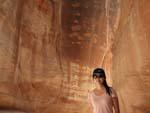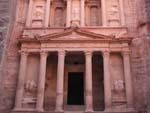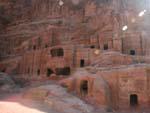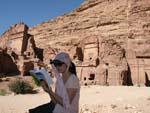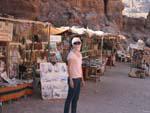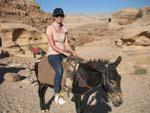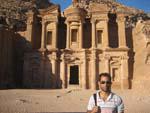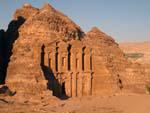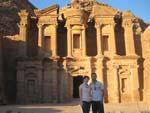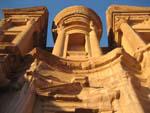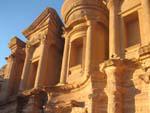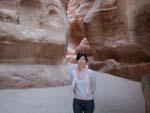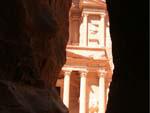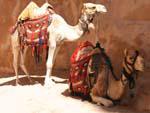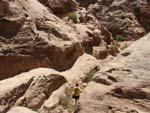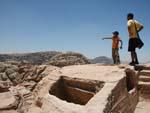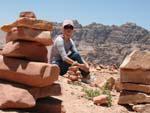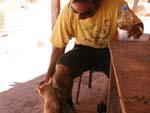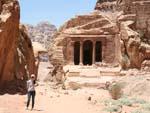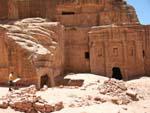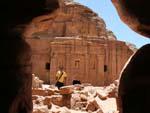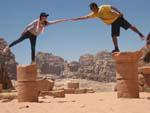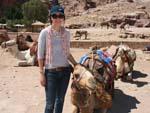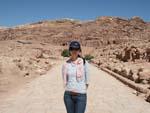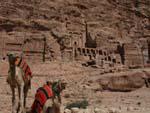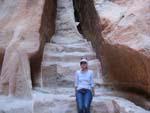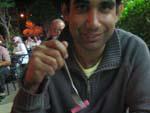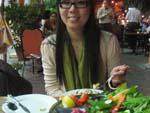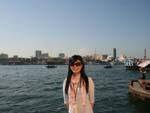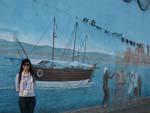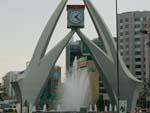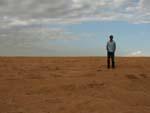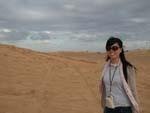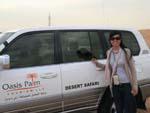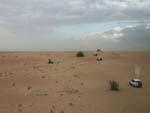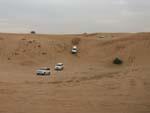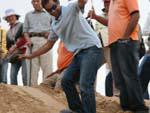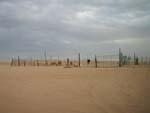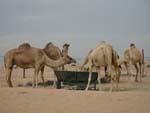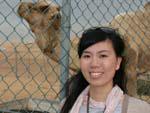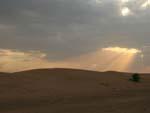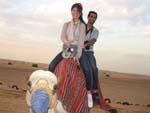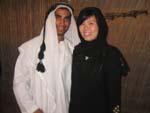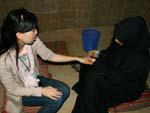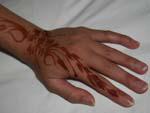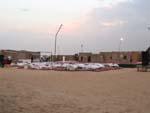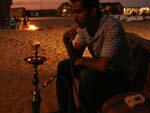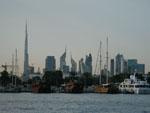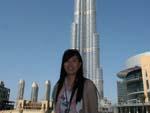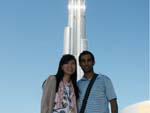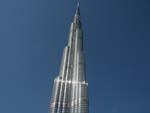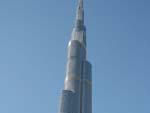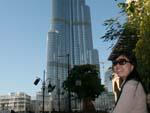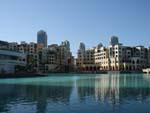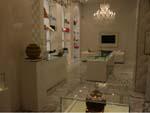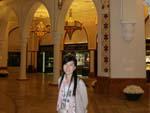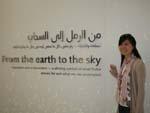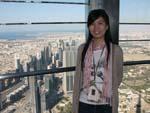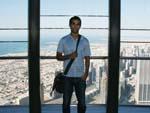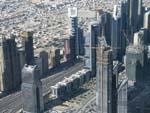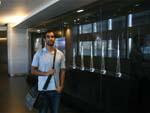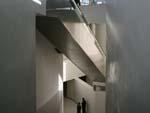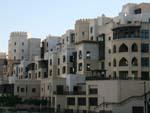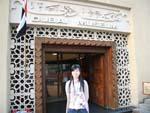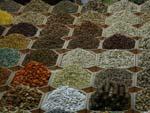Aqaba
Aqaba is a town at the very southern tip of Jordan. It is a seaport and is at the head of the Gulf of Aqaba, a gulf of the Red Sea. Famous historically for being raided by T.E. Lawrence during the Arab Revolt, the town is now a popular resort and diving location. We arrived in the city late evening, and checked into the lovely Golden Tulip. It is a three star hotel, comfortable with air-con and a pool – definitely a bit of a step up from the places we had been staying at! We rested after the drive from Petra and decided to walk around and look for some food. We stumbled upon a nice little pizzeria a few blocks away from the hotel and decided to get pizza, mint tea and Gelati for dessert. Dinner was delicious and great value. It was a warm, balmy night but we were pretty tired and decided to wander back to hotel, stopping by the bottle shop next door. Yup, the first bottle-o we’d come across in Jordan. Apparently, Aqaba is much more lenient with alcohol in comparison to the rest of the Kingdom. The shop had almost everything imaginable… but we decided we’d try the Jordan-brewed beer, Amstel (brewed with the assistance from the Netherlands company).
Red Sea
The following morning we decided we would do a bit of snorkelling in the Red Sea. After stopping by a local shopping centre to buy sunscreen and some sheets (for camping in Wadi Rum), we followed the Lonely Planet suggestions and went to a resort called Royal Diving Club on the southern coast, almost bordering on Saudi Arabia. On the way there, driving down the coast of Red Sea, it was hard not to notice how blue the Red Sea is. The deepest bluest sea I have every seen!
We reached the resort and the staff there promised excellent coral reefs nearby and vast marine life (within the Red Sea Marine Peace Park) – and they were right. We spent a good part of the day snorkelling and enjoying the beautiful underwater views. Travis had brought his underwater camera cover so we got a few underwater shots as well. It was a bit of an expensive exercise (entry fee to get into the resort – 15 JD each and another 15 JD each for equipment hire) but was definitely worth it! Whilst the resort was targeted for western tourists, and many girls wore bikinis, I did see an Arabic lady wearing a full body swimsuit which was a first for me!
On our way back to Aqaba we stopped for a bite at the Ali Baba Restaurant which offered a plentiful range of meze, we had some grilled fish, Baba Ghanoush, olive salad and chips.
thydzikgooglemap(http://sonyaandtravis.com/maps/jordan-aqaba-to-wadi-rum.xml)
Wadi Rum
We decided to head back towards Wadi Rum for the afternoon and to spend the night there. After the entry ticket collector who advised standard accommodation rates were 25 JD per person for the night, including dinner and breakfast (the most we were to spend in Jordan!), we hired a 4WD (and driver) to get to the accommodation site. Wadi Rum is famous for being the dessert which T.E. Lawrence journeyed through during the revolt. It is the largest wadi (valley) in Jordan and travellers often go there for hiking, rock climbing or just to experience the nomadic life of the Bedouin and the beautiful vastness of the dessert. Given we were in Wadi Rum during the hottest part of summer, we planned we would be there from mid afternoon to the following morning. Our 4WD trip there was, well, scary. The 4WD was basically a two-seater in the enclosed area, and the ute-like back with two rows of seats on either edge, was where we were seated – unbelted and just holding on for dear life.
When we arrived at the camp it was already near sunset. We noticed many couples perched romantically on high rocks, clinging onto each others hands and waiting for the sun to set. The driver introduced us to the guys that run the camp, two Bedouin brothers who suggested we find a nice spot to watch the sunset… So we wandered around the camp area. Naturally, Travis wanted to climb the highest rock and I was quite happy with the mid-level cliffs. The desert was so quiet, not a building in site, just one or two Bedouin camps in the distant. Very vast, very orange. After the sunset it was still quite bright, we explored a little bit more before heading back to our tent to get ready for dinner. Our tent, by the way, was huge (not like our Nullarbor two-person tent!). It was about three metre’s high and we were in fact ‘sharing’ with a family of four, as the tent was partitioned in the middle. This meant we could hear their conversations (they were French, so we didn’t understand a word), and see their outlines on their side of the tent. Dinner was in a communal tent, decorated beautifully, Bedouin-style. There were about eight low tables (for each of the parties) and cushions around each tables decorated with Kilim-like cloths and candles. It was very cosy. While simple, the food was delicious, probably one of the nicest meals we had in Jordan… chicken, rice, salads.
After dinner, Travis and I decided to have a bit of a walk. The whole area was lit up with stars. It was completely beautiful. We walked, talked. it was such a surreal feeling, being in the middle of this beautiful, ancient desert. Would have been nice to sleep outside!
The next morning, we were woken up by the giggles of the French children in the tent… so we woke up and had breakfast with everyone else. We were the only travellers from an English speaking country it seemed as everyone was chattering away in their own languages, French, Italian, Spanish, German, Arabic.
At about 8am we hopped on the 4WD back to the Wadi Rum village, back to our Citroen and headed towards the Dead Sea Hwy.
Wadi Araba and Lot’s Cave
Along the Dead Sea Highway we noticed the arid landscape that is Wadi Araba. While not as famous as Wadi Rum, it seemed very vast and uninhabited. but who knows! It was a long drive with very few towns along the way. We stopped at a rest house for some Turkish coffee where I remember getting inquisitively stared at by some local kids.
As we drove on we eventually saw a vast expanse of light blue which was our first sighting of the famous salty Dead Sea.
Our first real destination along the Dead Sea Highway was Lot’s Cave. As a little girl I remember learning about the bizarre stories of Lot, his wife and his daughters and so was excited about checking out this biblical site (seduction, incest, what else could invoke such curiosity?!). Our GPS took us around in circles for a while through a small town but we eventually found it with the help of the LP. There was a half-finished museum at the foot of a hill which we understood to be for the purposes of Lot’s Cave (or Prophet Lut’s Cave as the sign indicated). We drove around and eventually we found a man who introduced himself as the caretaker/guide to Lot’s Cave. He told us to drive up the steep hill to the parking area and advised us that he’d meet us there. He got there about three seconds after us and took us up the steps of the hill. Yep, more steps. Lots of them. It was superbly hot and right in the middle of the day. There appeared to be no other tourists or people around which made us realised how unexplored a lot of these sites are, despite their biblical significance… We confirmed with the guide, that we were in fact the only people that had visited so far that day. At the top of the hill we found the cave. A big cave about three metres deep. More interesting to me was that during the Byzantine area a church was built directly around the cave so around the site were remnants of stones from the church. Our guide also showed us that under the sandy surface we were standing on were metres and metres of mosaics which had not yet been uncovered (due to the heat). The plan is to build a covering around the cave before removing the surface to expose the 5th to 8th Century artwork. Not sure how long that will take by the looks of things! From the cave was a great few of the Dead Sea, fields of bright red tomatoes, aubergines, date trees, potatoes and banana trees and a nearby Potash industry. We gratefully tipped the guide (managed to get rid of the 5 USD the little Bedouin boy in Petra gave us!) and continued on.
Bethany-Beyond-the-Jordan
Much to a lot of people’s surprise, the official site where Jesus Christ was baptised is in Jordan. Bethany-Beyond-the-Jordan was sanctified by Pope John Paul II in 2000 as where John the Baptist preached. The site is on the border of Israel and Jordan, where the Jordan River divides the two countries. Back then though, there was no Jordan.
The site was populated with a handful of tourists with whom we were to tour with. Some Singaporeans, a British family, a couple of Irish teachers and a Syrian Travel TV group who were filming a program of travelling around Jordan. So during our tour we had a film crew capturing our every “ooh and ahh” moment. The Baptism Site is quite large. Interestingly, there are about 11 different churches from various denominations built around the site. We saw the site where Jesus was to have been baptised and then got to dip our fingers into the very unimpressive (and dirty) Jordan River. The interesting sight was the Israeli flag only a few metres away across the ditch and a mirroring area on the other side for tourists in Israel to do the same.
Floating in the Dead Sea
After leaving the site, we considered taking a dip in the Dead Sea. However, it was still so hot so we thought we’d have lunch instead. The Dead Sea Panorama is a bit of a drive up but provided a lookout point over the Dead Sea. It has a restaurant and museum which we wandered through. We decided to eat at the restaurant, it was empty except for an American couple. We ate grilled meats of lamb, chicken and kebabs, shanklish (local blue cheese with tomatoes, onions and parsley), a walnut dip and bread. It was simply delicious and the service equally great. The restaurant is supposed to be popular with locals on the weekends.
After eating we decided to brave the Dead Sea. We had the option to go to the resort, pay a fee of 20 JD where we could comfortably walk into the sea, take a few snaps and have refreshing fresh water showers after. However, there was the alternative option of parking on the side of the cliff, climbing down to the bay and having our own private swimming area. Of course, we went for the latter. It was still extremely, unbelievably hot even though it was about 5pm in the afternoon by then. Travis went in first. I went in. It’s such a funny feeling having that buoyancy in the water, you can barely swim and the best approach seemed to be just to float on your back. We took the obligatory photos and headed back to the car covered in salt. The sand on the banks of the bay was salty, and there were salt formations growing on the rocks in the area. Quite amazing.
Tired and salty we decided to find a hotel. We decided to give the pricey resorts in the Dead Sea area a miss and head back to Madaba. I was craving the kebabs we had in the local coffee shop a few days earlier! We stayed at the nicest little hotel called Marian Hotel. It had a balcony with a beautiful view of the pool and the city below.
thydzikgooglemap(http://sonyaandtravis.com/maps/jordan-wadi-rum-to-madaba.xml)
Israel border
We had this idea that it would be easy to cross the Israel border and spend a day or two visiting Jerusalem, Nazareth, Bethlehem and Jericho. So we thought we’d give it a go the following day. It was so close! We drove to the first crossing – King Hussein Bridge. Unfortunately, it appeared cars weren’t allowed to cross the border only buses and taxis. So we drove another thirty kilometres north to the Sheikh Hussein Bridge. This is where it got interesting and a little confusing. We drove to the Jordanian gate firstly. A bunch of handsome, young officers looked at us and at our car. After showing them our passports, our car registration and utilising hand signals we managed to communicate (or so we thought) that we wanted to drive our car across to Israel for a day). They seemed fine with it and encouraged us to drive down to the Israeli gate, so we did. At the Israel gate we faced further communication issues. The officers there looked at our passports and car registration but we quickly came to understand they wouldn’t let us through with the car. We couldn’t figure out why. We drove back to the Jordan gate and a few of the officers came to our car, looking to assist us. About ten minutes later we had conjured up a crowd of about six or seven Jordanian policemen all keen to help us. We used our Arabic guide book and managed to figure out that we needed our car registration translated from Arabic into English (or Hebrew perhaps?), however the closest place to do that was about 20km away in a town called North Shauna. And the place closed in thirty minutes. We (or should I say Travis) decided to give it a shot. Imagine trying to find a specific car-registration translation place in a town. It was tough, but we found it! Alas, it was too late. We literally got there about five minutes after it had closed. What an experience!
Umm Qais
So, we decided to instead visit Umm Qais, a remote historical town in the north of Jordan (very near to where we already were). We followed the Israel-Jordan border which meant there was hardly any traffic, but we had to stop at countless checkpoints along the way. Most border guards were professionally friendly “Where are you from? Australia? Welcome to Jordan!” however one was suspiciously over-friendly. First he checked our luggage (which none of the others did) and then, offered to give us a tour of the area showing us how the Israeli occupied Golan Heights was just below us. He wanted photos with us, which we took with him and left the checkpoint ASAP.
Umm Qais, also known as Gadara, is one of the ancient roman cities. It is less explored by tourists due to its remote location and was one of the ten cities of the Decapolis. It is also, according to the Bible, where Jesus performed one of his miracles of casting demons from two men into a herd of pigs. From the ruins you can see the Sea of Galilee across the Jordan Valley.
thydzikgooglemap(http://sonyaandtravis.com/maps/jordan-madaba-to-jarash.xml)
Jerash
After Umm Qais, we headed towards Jerash (another more famous ancient Roman city, another of the Decapolis). Passing through Irbid, the drive was quite hilly and scenic. Jerash was a bustling city and much of the town revolves around the ancient ruins. We decided to visit the following day as it was getting late. So, we headed to Lebanese House for some dinner. A bit of a fancy place, where actor Richard Gere, King Hussein, Queen Nour and other famous Jordanians, Syrians etc have dined, we felt slightly under dressed in our travel-wear. We ate a yummy meal of Meze and headed to Hadrian Gate Hotel for the night.
The following morning we had breakfast at the hotel and then walked down the Jerash ruins. The site has been very well preserved/restored and we could see why this was one of the most popular Roman ruin site in Jordan. Jerash ruins is consistent of two large amphitheatres, the famous Oval Plaza which use to be a bustling Roman market place, cathedrals, theatres, a hippodrome (ancient sports field for chariot races) and baths. We wandered through for a few hours.
Desert Castles
After Jerash we headed towards the East (against advice of the hotel caretaker who told us it was too hot!) to the Desert Castle region. After a long drive we reached Qusayr Amra, my favourite castle. It is a Unesco World Heritage site and use to serve as a bathhouse and lodge to the Umayyad people. As soon as you walk into the castle you notice some of the risqué murals painted around the wall. Very unexpected. Like all the ruins in Jordan, the castle is believed to have been occupied during the various periods. Constructed in 705AD it was then occupied by a Muslim Prophet, Walid, then the Umayyads..
thydzikgooglemap(http://sonyaandtravis.com/maps/jordan-jarash-to-azraq.xml)
We continued east to Azraq. This town has a bit of a sad story. It used to be an oasis and an important source of water for Jordan but in the 1990’s the water was reduced significantly and the oasis and surrounding wetlands eventually depleted. Much of this attributable to the surge in population when Palestinian refugees fled to Jordan in the 60’s. At Azraq we decided to find accommodation and have a late lunch. We had some kebabs, and walked around, stumbling across a store filled with copious amounts of freshly made Turkish delights and other Arabian candies.
The following day headed to Qasr Al-Azrag a huge grey stone fort where T.E. Lawrence and Sharif Hussein bin Ali stayed during the Arab Revolt against the Turks. Quite an impressively huge fort with huge big stone doors which had a brilliantly-engineered hinge and keystone archways. We had a guide walk us through the place, including the room where Lawrence would have lived during the winter of 1917.
thydzikgooglemap(http://sonyaandtravis.com/maps/jordan-azraq-to-amman.xml)
Amman
With Iraq only another few hundred km’s east we thought we’d head back west to Amman, our destination being the Royal Automobile Museum which houses the King of Jordan’s massive car collection. Whilst not a huge car buff in any way the museum was definitely far more impressive than the local WA car expo we once went to.
We headed back to downtown Amman to look for accommodation for the night. City Palace was fully booked so we continued walking down King Fasiel St looking for somewhere to stay. After visiting some very questionable and extremely unappealing places, we found a nice little backpackers, Cliff Hotel (which coincidentally was in the LP). The place didn’t have private bath facilities but as far as we were concerned it was far more tourist -friendly than some of the other places we had seen, so we settled for a room there. We’d heard something about a jazz show at the Amman Citadel that night, so went to a mall to buy some tickets. The mall was very westernised, having various American stores like TopShop, Mango, Body Shop etc. And people, including women were dressed ‘western’ (as opposed to those in the downtown area) – the girls were beautiful with their long dark curly hair and olive skin. We went back to our favourite Hashem Restaurant, just across the road for some falafels and mint tea before heading to the Citadel. The show was amazing. We appeared to be the only tourists, so it was predominantly local Jordanians in their 20’s and 30’s. If it weren’t for the Arabic words we would have thought were in Australia or the States. The show was great! Arabic-Jazz Fusion music in the heart of Amman, held within a historical site which had been lit up in brilliant coloured lights. I really liked the first band. Sounded like an Arabic Muse, very emotive music. The second band had a great pianist and played some famous jazz tunes. The third band was led by a pretty Arabic woman in a sparkly top who had a strong sultry voice. The language never sounded so good!
So that concluded our last night in Jordan. The next morning we headed out of downtown Amman towards the airport back to Doha. Thanks Jordan, what a great country!




































































































